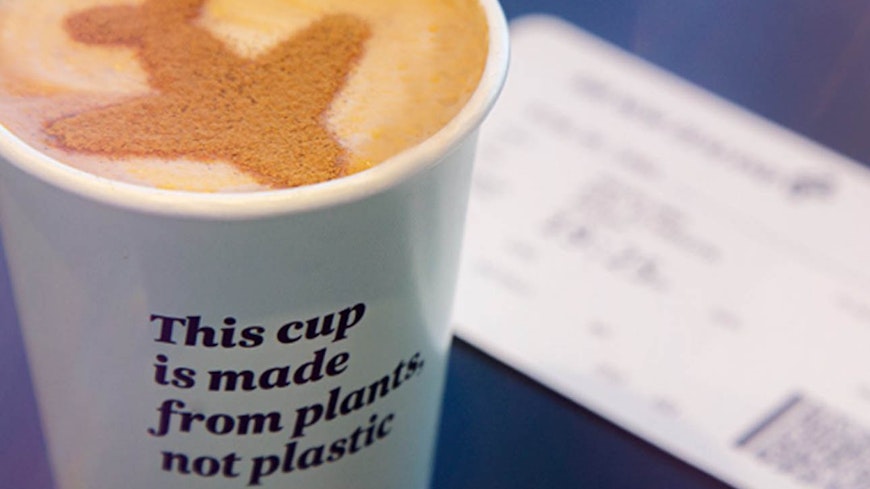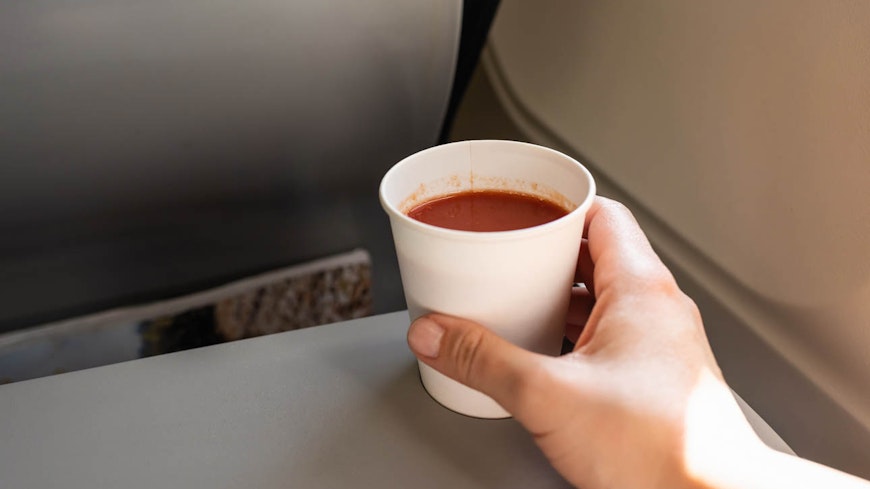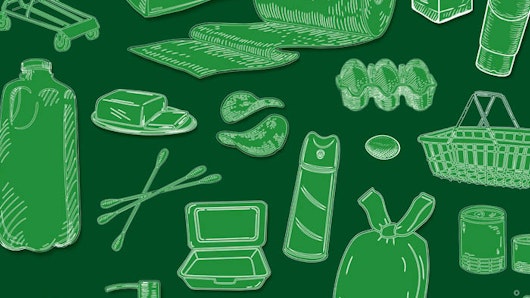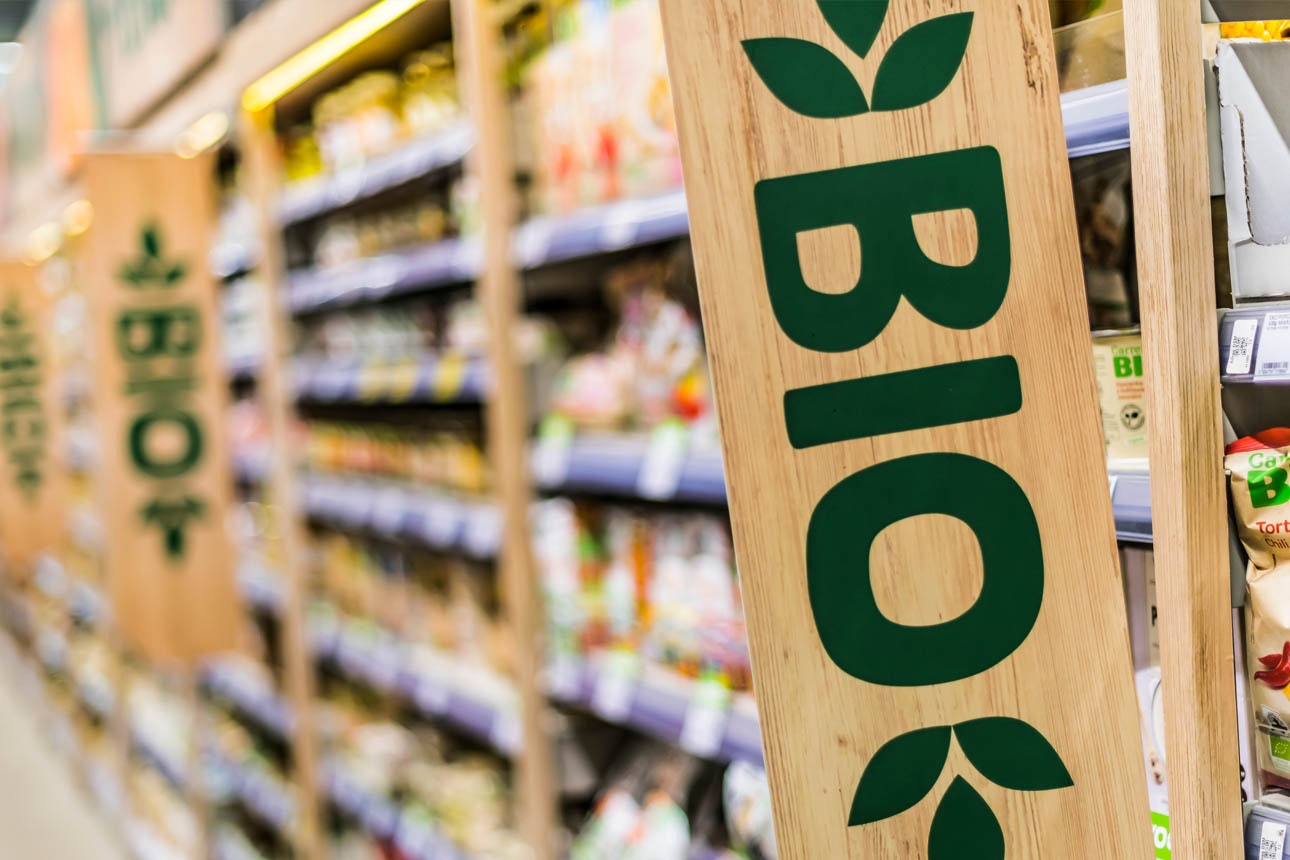
By Rebecca Styles
Research Lead | Hautū Rangahau
“This cup is made from plants not plastic” is stated on the hot beverage cups on domestic Air New Zealand flights.
While you may be inclined to sit back, relax, and enjoy your flight knowing you’re supping from a ‘green’ cup – the claim doesn’t stand up to a little turbulence.
The cups contain a bioplastic lining and are compostable, but there’s still a very good chance they’ll end up in landfill.

Air New Zealand / Instagram
What is bioplastic and is it as ‘green’ as we are led to believe?
We asked Air New Zealand what the cups were made of. A spokesperson said they’re made from paper with a BioPBS (bioplastic) lining.
The BioPBS is a compostable bioplastic material that can withstand hot liquid.
Bioplastics are made from plant materials, usually corn or other crops. While ‘normal’ plastic is made from fossil fuels.
However, this isn’t as good as it sounds.
Just because something is made from a plant doesn’t mean it has less impact on the planet than products that aren’t. If monoculture crops are being grown for plastic rather than food, it leads to biodiversity loss, significant water usage, pesticides and fertilizers in our waterways, and results in degradation of soil.
Are the cups composted?

The Air New Zealand cup can be composted in commercial facilities, but due to the limited number of facilities in Aotearoa it’s likely the cups could end up in landfill.
Only cups from incoming Auckland domestic flights are composted.
Air New Zealand acknowledged that “customers may have an impression when using these cups they will be disposed of in a sustainable way.”
As we highlighted in our recent greenwashing investigation there is a lack of industrial composting in New Zealand.
We asked Air New Zealand how the rest of cups were disposed of but didn’t get a response.
It did say that its advocating for improved recycling infrastructure across Aotearoa. However, given the airline is creating the waste, we would hope it would come up with a solution to dispose of it responsibly.
If the cups end up in landfill, it’s highly unlikely they’ll break down quickly.
Composting is a “specific process that will only work in certain conditions,” according to The Ministry for the Environment’s report on Compostable products (2022).
So, if you chuck the compostable cup in landfill, it may not biodegrade.
Is it greenwashing?
If most of the cups can’t be composted due to a lack of infrastructure, and ends up in landfill, we think Air NZ is greenwashing.
The cup is still a single-use product. The aims for a circular economy are to eliminate, reduce or reuse what plastics can’t be avoided.
“We are always on the lookout for a more sustainable solution for our coffee cups and there are a number of innovations in this space that we’re currently scoping,” Air New Zealand said.
They also invited customers to bring along a reusable cup to avoid using the single use product.
It could also be said that the use of ‘green’ messages on aircrafts is a diversion from the fact the industry relies on fossil fuels. Such diversion is another type of greenwashing.
While Air NZ say they still have work to do, they believe the greenwashing claim is unfair. We have “an ambitious roadmap to decarbonise our airline” with a number of initiatives underway, it said.
Yet those initiatives - emission reduction plans - have targets that are years away from bringing tangible results.
What’s the difference between a plastic and bioplastics?
Jocelyn Turnbull is a radiocarbon scientist at GNS. She was involved in a study which tested plasticware samples to see whether the products met their bioplastic claims.
The GNS study found that half of the ‘bio’ plasticware it tested contained fossil fuel plastics.
“Currently, there isn’t any regulation on bioplastic labelling,” Turnbull said.
The recent phaseout of plasticware – from drink stirrers to bowls and cutlery – also includes bioplastics along with ‘normal’ plastic.
We need new regulations to tackle ‘green’ claims
Greenwashing refers to the deceptive or misleading marketing practices used by companies or organisations to make their products, services, or practices appear more environmentally friendly or sustainable than they actually are.
Our investigations have found that there’s no shortage of products spouting environmental claims.
Regulators in the EU, UK, and Australia have found that 40-50% of environmental claims in industries like clothing, cosmetics, food and drinks are false. New laws are now being implemented overseas to stop this.
In New Zealand, the Commerce Commission is responsible for policing false claims, but it generally relies on shoppers to report them. It shouldn't be up to consumers to keep companies honest.
Join our call for an independent investigation into greenwashing claims in New Zealand, and new regulations to tackle greenwashing.

Help stop greenwashing in Aotearoa
We need your help to call out dodgy 'green’ claims.


